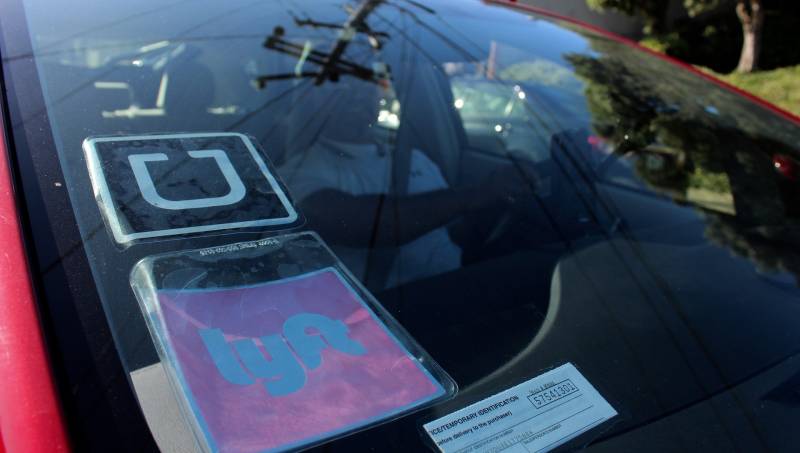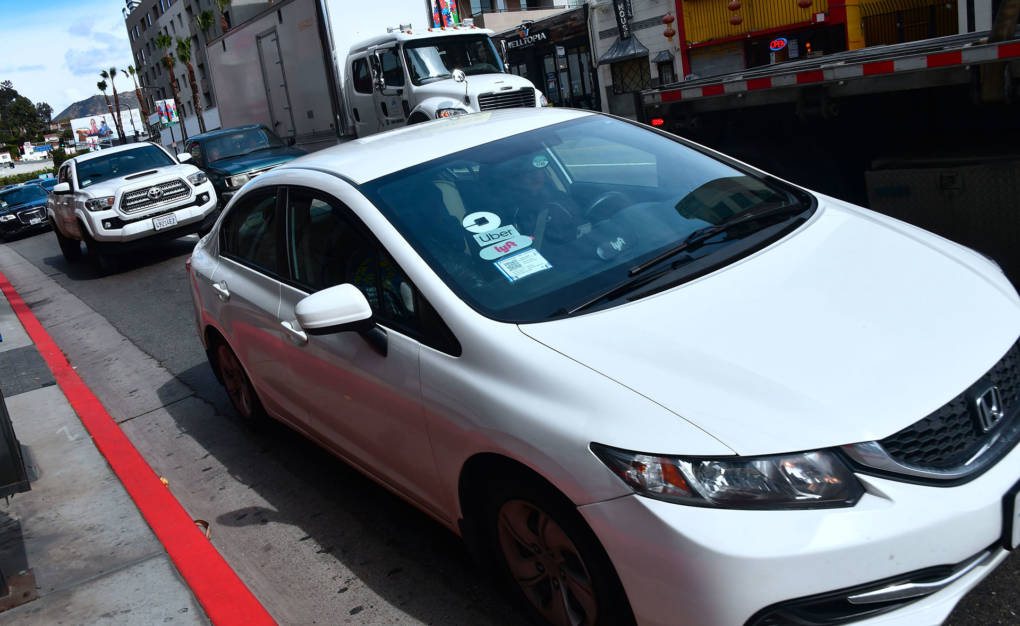"The same week that workers had to go on strike because their per mileage fee was being cut, an investor was celebrating his $30,000 investment that became $120 million in one day," she said during a debate on the Assembly floor in April, shortly after Lyft went public. "Something is wrong with the way that we have allowed these companies to operate."
The legislation codifies a ruling from the California Supreme Court that established a new test for classifying workers. Gonzalez says she hopes city attorneys and the state attorney general will hold gig companies responsible if they do not comply with the law.
"This is an ongoing battle," she says as the law takes place.
Uber and Lyft declined an interview for this story, but they and other gig companies have developed a multipronged strategy to avoid complying with the new law.
First, companies are negotiating with lawmakers and labor unions to create an alternate class of worker — basically a contractor with added benefits.
Also, earlier this week, Uber and Postmates filed a lawsuit in federal court challenging AB5.
Then, there is the nuclear option: Gig companies have sunk more than $100 million into a ballot measure to exempt them from the requirement that they are hoping to put before voters in November.
Drivers on all sides of the debate have weighed in. A group called Gig Workers Rising has mobilized drivers to demand better wages and the opportunity to collectively bargain. The group lobbied lawmakers to pass AB5.
But others say they fear losing the flexibility that comes with setting their own hours as a contractor.
"With this job, I have the freedom to work when I have time," says Alfonso Martinez, who drives for Uber in the Sacramento area. He says it allows him to balance the demands of being a father to school-aged children who have special needs.
Industries such as trucking, journalism and those involved in the gig economy are pushing back by filing suit in federal court.
But some companies are scrambling to figure out how to comply.
In December, the sports website SB Nation announced it would terminate contracts with hundreds of freelancers in light of California's new labor law.



9(MDAxOTAwOTE4MDEyMTkxMDAzNjczZDljZA004))